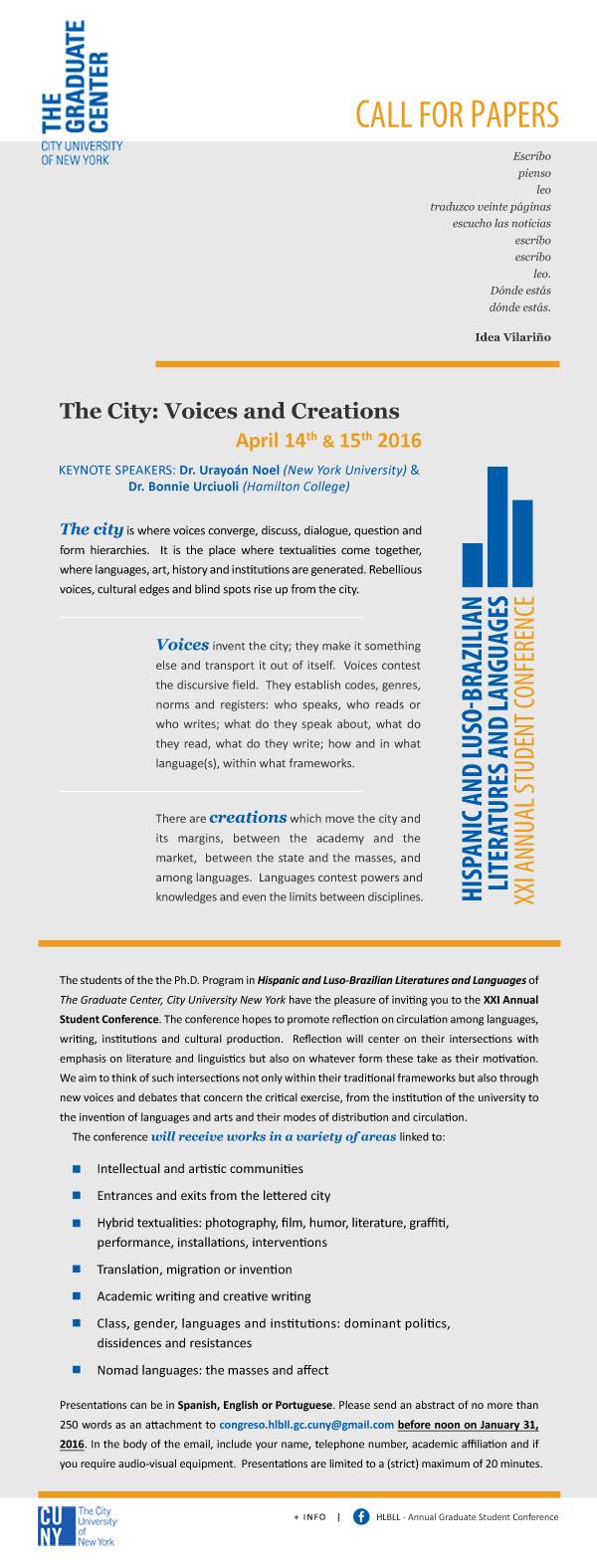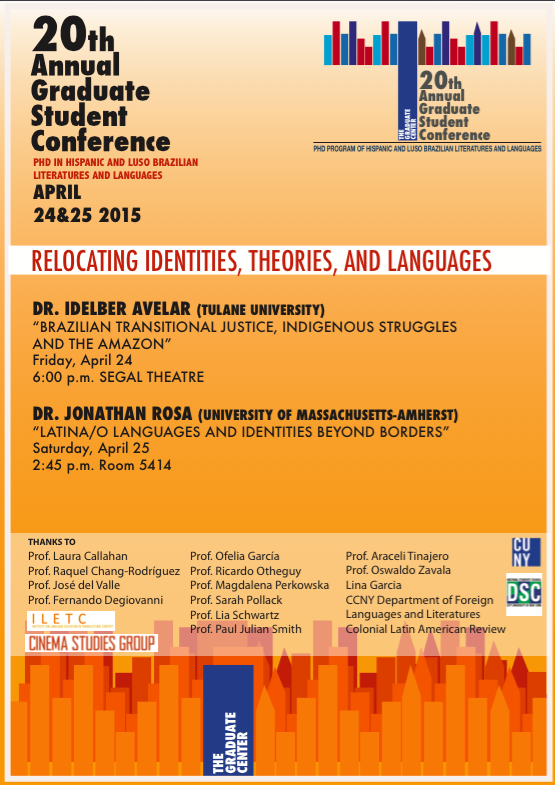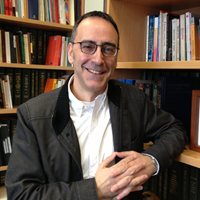FALL 2015 – COURSE LISTINGS
THREE-CREDITS
SPAN 70100 – El español como objeto de interés histórico
GC: Tuesday, 4:15-6:15 p.m., Rm. TBA, 3 credits, Prof. del Valle
SPAN 70200 – Hispanic Critical & Cultural Theory
GC: Tuesday, 6:30-8:30 p.m., Rm. TBA, 3 credits, Prof. Zavala
SPAN 70500 – Spanish Syntax
GC: Tuesday, 2:00-4:00 p.m., Rm. TBA, 3 credits, Prof. Otheguy
(cross-listed with LING 79100)
SPAN 87000 – Neo-Baroque Continuities & Ruptures in Cuban & Mexican Literatures
GC: Thursday, 6:30-8:30 p.m., Rm. TBA, 3 credits, Prof. Riobó
SPAN 87100 – In-Between Worlds & Tradition: Rereading the “Crónicas de Indias”
GC: Wednesday, 6:30-8:30 p.m., Rm. TBA, 3 credits, Prof. Chang-Rodríguez
SPAN 87200 – The Cinema of Pedro Almodóvar and Guillermo del Toro
GC: Wednesday, 4:15-6:15 p.m., Rm. TBA, 3 credits, Prof. Smith
SPAN 87300 – Políticas de la Lengua y Culturas de Transición en España (1975-2015)
GC: Friday, 2:00-4:00 p.m., Rm. TBA, 3 credits, Prof. José del Valle & Prof. Germán Labrador
SPAN 87400 – Asaltos a la biblioteca: Scenes of Reading in Latin America
GC: Monday, 4:15-6:15 p.m., Rm. TBA, 3 credits, Prof. Degiovanni
ONE-CREDIT MINI-SEMINARS
SPAN 87200 – Reflexiones en torno a una piedra
GC: Monday, 10/5/2015 – Thursday, 10/8/2015, 1:30-4:00 p.m.,
Rm. 4116.18, 1 credit, Prof. Bernardo Atxaga (Atxaga Chair)
SPAN 87200 – Economia política, estructura de la comunicación y sociolingüistica del Catalán
GC: Monday, 9/28/2015, 1:30 – 4:00 p.m., Tuesday, 9/29/2015, 11:45 a.m. – 1:45 p.m., Wednesday, 9/30/2015 & Thursday, 10/1/2015, 1:30-4:00 p.m.
Rm. 4116.18, 1 credit, Prof. Toni Molla (Rodoreda Chair)
SEE ALSO
SPAN 88800 – Dissertation Workshop
GC: Tuesday, 6:30-8:30 p.m., Rm. TBA, 0 credit, Prof. Degiovanni





